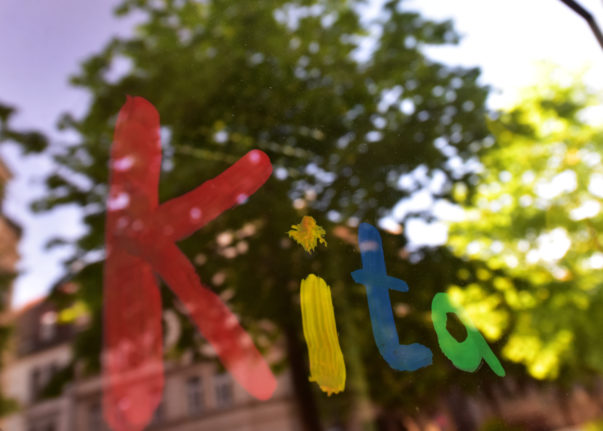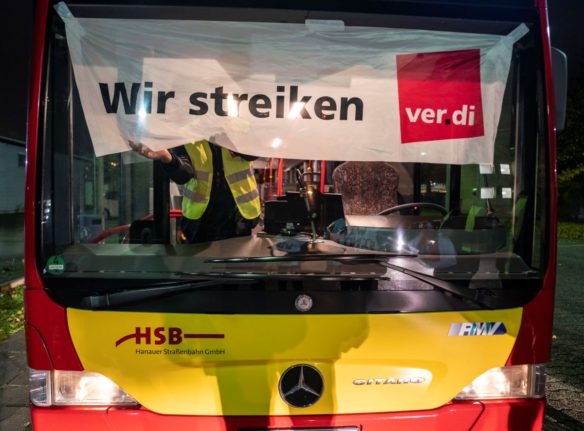The trade union Verdi has called on Munich public sector employees to participate in a major action on Tuesday, March 21st.
“According to the feedback from the participating companies and administrations so far, this will be the biggest strike action in recent years,” Munich’s Verdi managing director Heinrich Birner told the Süddeutsche Zeitung.
Birner estimated that around 3,000 people would take part in the city-wide action, which will begin with a mass gathering at Marienplatz in the city centre at 11 am.
The strikes are set to result in the closure of city administrative departments, social and educational services, waste management companies, and public utility services, including swimming pools, hospitals including München Klinik, banks belonging to the Stadtsparkasse, and the Employment Office (Agentur für Arbeit).
In recent weeks, workers all over Germany have been walking off the job in an ongoing dispute for higher wages.
READ ALSO: EXPLAINED: Why are there so many strikes in Germany right now?
The latest round of Verdi strikes on Monday saw public transport come to a halt in several cities in North Rhine-Westphalia and Bavaria.
Residents of Bavaria’s capital have particularly felt the effects of the actions in recent weeks, as rubbish bins have remained empty, buses and trams have come to a standstill, children were unable to go to Kitas, and flights at Munich airport were delayed or cancelled.
Verdi is asking for a 10.5 percent wage increase for the 2.5 million federal and local government employees nationwide, but at least €500 more per month.
The employers have so far offered a gradual five per cent increase over a two-year period, as well as €2,500 in one-off payments, which Verdi has rejected as insufficient.
“Many in the lower income groups really don’t know where they can save any more,” said Birner.
In expensive Munich, workers suffer particularly from inflation, which continues to drive up the costs of food, energy and housing.
READ ALSO: Munich’s public transport ‘largely out of service’ amid strikes
In addition, employees are carrying a heavy workload, as thousands of jobs are now unfilled. The Bavarian state capital alone is short of more than 4,000 workers.
Verdi has said that it will organise a countrywide strike in both public transport and administration on Monday, March 27th if its demands continue to go unmet.



 Please whitelist us to continue reading.
Please whitelist us to continue reading.
Member comments